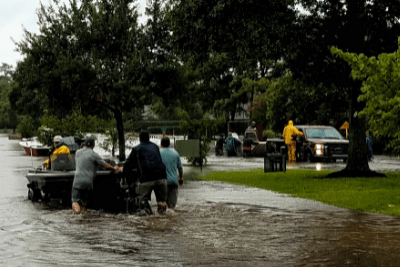Amazon Opens Disaster Relief Hub

Table of Contents
To mark the start of hurricane season, Amazon announced it is opening its first Disaster Relief Hub. The facility will store emergency supplies to help front-line community partners quickly respond to natural disasters across the southeastern United States, the Caribbean, and Central America.
CLOSE TO HARD-HIT AREAS
Near Atlanta, the hub is located 310 miles from the Gulf Coast, 734 miles from the Bahamas, and about 1,535 miles from Puerto Rico and other Caribbean islands. These are the areas that experience the most active hurricane season. The new facility gives Amazon’s community partners the ability to quickly respond to hurricanes, floods, and other natural disasters.
“Our disaster relief and response team is partnering with global humanitarian relief organizations to leverage Amazon’s scale to help improve response time to large-scale natural disasters around the world,” said Alicia Boler Davis, Vice President of Global Customer Fulfillment at Amazon.
“Our expertise in logistics and operations allows us to be nimble, fast, and effective. We’ve created the Disaster Relief Hub in metro Atlanta to provide rapid relief when it’s needed most by donating and delivering hundreds of thousands of emergency aid supplies, including shelter materials like tents and tarps, hygiene items, and medical equipment.”
INSIDE THE HUB
The hub will stock over half a million Amazon-donated relief supplies in 10,000 cubic feet of fulfillment center space. According to the company, that is enough to fill an Amazon 767 cargo plane.
AMAZON'S RESPONSE
Once a natural disaster occurs, Amazon’s emergency teams assess what supplies they have, obtain the items they need, then consolidate, pack, and ship supplies into disaster zones. Amazon says that process can take multiple days. The shorten that response, Amazon analyzed its data across four years of disaster support.
Amazon says The Disaster Relief Hub will initially support six global humanitarian aid organizations- the American Red Cross, Direct Relief, the International Federation of Red Cross and Red Crescent Societies, International Medical Corps, Save the children, and World Central Kitchen.
PREPARING FOR THE STORM
However, it's important to prepare as much as possible before the storm or disaster hits. Make sure your family has a weather radio at home in order to get alerts for any severe weather headed your way.


